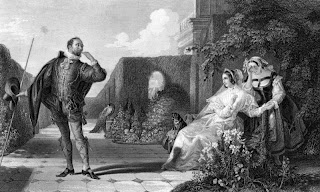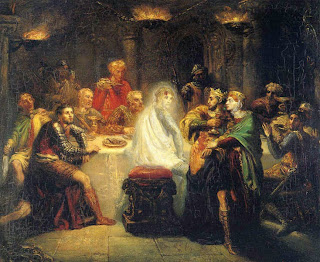One of the most amazing aspects of William Shakespeare's plays is their diversity. While some playwrights fit into one genre and stay there, William Shakespeare had a far more diverse career. His body of work includes comedies, histories, dark comedies and, of course, tragedies. Out of all of William Shakespeare's plays, it would be safe to say his tragedies were among his best and most famous works.
Understanding the Tragedies
The plays that fall under the category include MacBeth, King Lear, Romeo and Juliet, and Hamlet. Needless to say, it is obvious why William Shakespeare's tragedies are so well received. The aforementioned plays are among the most stirring work he had created. That is why they are still studied and performed to a significant degree while other plays receive significantly less attention. This brings about an interesting question. Why would these dark tragedies be more popular than lighthearted (yet brilliant) fare such as A Midsummer Night's Dream?
Not Nihilism
If there was a major misconception about the tragedies of William Shakespeare is that they are nihilistic tales. That is, there is a (false) assumption these plays are downbeat and filled with misery. The world the heroes of these plays live often appears dark and ominous. It would seem the hero's sad end betrays the fact that the world is without hope. "Seem" and "appear" are the operative word here. Such a dark view of the plays such an opinion of the plays is not exactly accurate. In actuality, the tragedies of William Shakespeare provide an insight into hope through their dark proceedings. Therefore, it would be inaccurate to consider the tragedies of William Shakespeare to be nihilistic at their core.
The MacBeth Example
Consider the tale of MacBeth. MacBeth is a character whose ambition leads him to commit acts of atrocity and murder. While these actions do allow MacBeth to arrive at the throne of power, they are ultimately his undoing. From this play, the reader/audience member is left with a very powerful message: ruthlessness comes with consequence and power achieved without legitimacy is fleeting. Again, on the surface, this would seem like a dark message but it is more of a cautionary tale. Actually, it is a very enduring cautionary tale. Even after several centuries have passed since the first performance of the play, the message of MacBeth is heeded. The power of the message of MacBeth still resonates today as it did 500 years ago. A dark, hopeless play or message could never have the ability to be so everlasting. It is the positive undercurrent of the play that allows it to maintain its relevancy.
Common Themes
Similarly, each tragedy William Shakespeare wrote had its own individual theme and moral tale. Hamlet's obsession for revenge can be considered his undoing. Romeo and Juliet show the dire consequences of seething hatred. King Lear presents the problems inherent with being blind to one's family's difficulties. Yes, while within each play there are tragic consequences, there are also moral directions provided to avoid such consequences. That, in and of itself, provides the basis for positivism and not one of nihilism.
Author : Marcel van Brienen
Tags : Shakespeare, William Shakespeare, William Shakespeare Facts, Facts About William Shakespeare, William Shakespeare Quotes, William Shakespeare Plays, Facts About Shakespeare, William Shakespeare for Kids, Shakespeare for Kids, Life of William Shakespeare, Biography of William Shakespeare, Macbeth, King Lear, Romeo and Juliet, Hamlet, Interesting Person, Weird Interesting Facts




EmoticonEmoticon